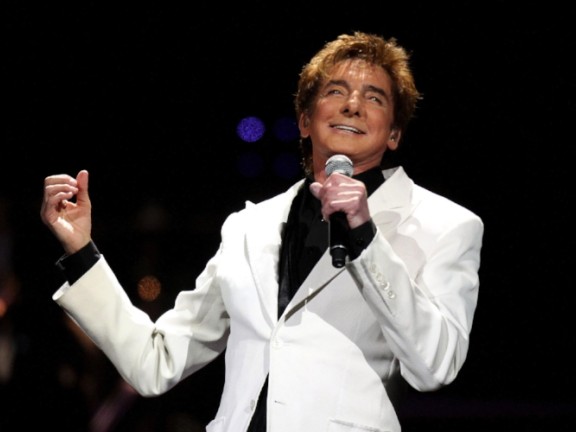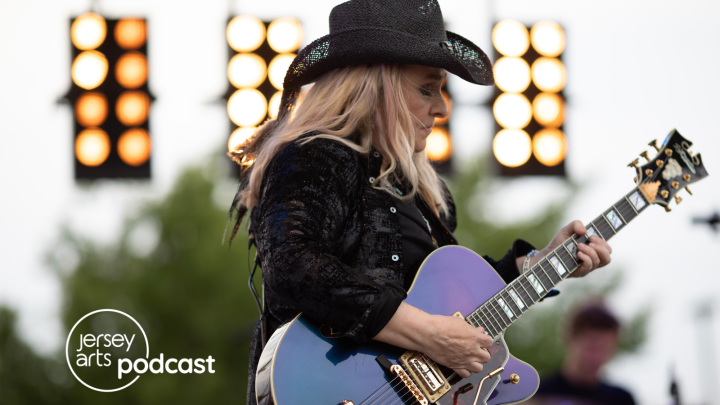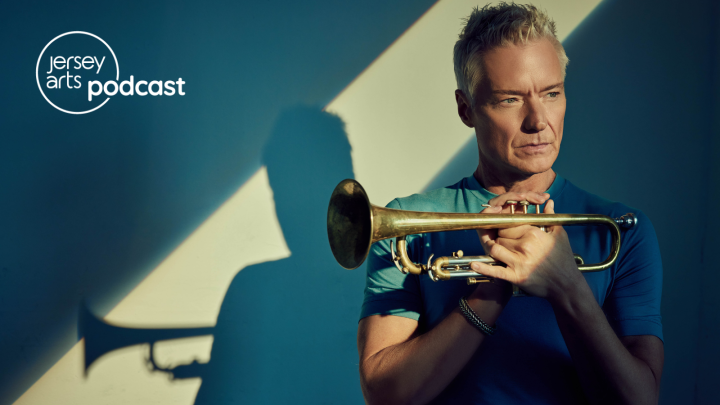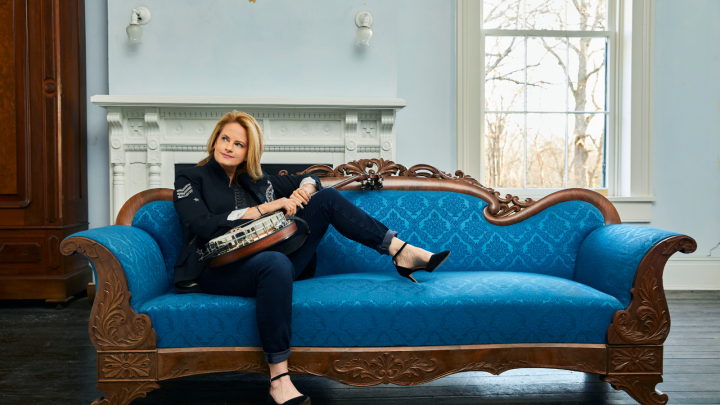Barry Manilow on Hits, “Harmony” & Brooklyn

Photo Courtesy of The Orlando Sentinel
Barry Manilow is returning to NJPAC for a special two-show engagement. It’s a new production, designed to deliver hit after hit after hit – something Manilow knows a lot about. Last year, he earned his fiftieth Top 40 hit. He probably couldn’t fit all fifty songs into one concert, but maybe he should try. (Some quick math: if you played “Mandy” back to back fifty times, it would take well over two and a half hours. Fifty “Copacabana”s would take just about 6 hours.)
Manilow is fresh off a critically acclaimed, sold out Broadway run. He recently performed at the annual Fourth of July concert at the U.S. Capitol, broadcast live and seen by millions of fans around the world. (In 2010, he headlined the Nobel Peace Prize Concert in Norway.) To date, he’s sold about 80 million records. He has a Grammy, a Tony and two Emmys. During the years he performed full-time in Las Vegas, he lived in Elvis’ suite. And, despite a history of music critics turning their noses up at him, at the age of 70, Manilow seems to be everywhere and widely embraced in an era in which pop songs swarm through our laptops and phones free of whatever associations or prejudices are out there to inhibit our enjoyment of them.
It’s not that he wasn’t already a household name – it’s that, in addition to his diehard fan base, a new generation of fans has come of age. He pops up everywhere from "American Idol" to NPR. A sizable chunk of his song “Sweet Life” was featured prominently in a Jay-Z remix. Dave Grohl of the Foo Fighters has gone on record saying that "Barry Manilow is the coolest motherf***er in the world." Homer Simpson sort of covered “Mandy” (“Oh, Margie. You came and you found me a turkey…”). As a classic “Rolling Stone” profile observed: “He endures. He adapts. He persists. There is always a new album. There is always a world tour. Most probably, he is the showman of our generation.” All that, and he’s a native of Williamsburg, Brooklyn – so he’s kind of a hipster Godfather.
He spoke with me by phone from California.
Jeresey Arts’: You grew up in Brooklyn – in Williamsburg – which is now one of the trendiest places on Earth. Tell me about the Brooklyn you knew growing up.
Barry Manilow: The Williamsburg that I grew up in was a rough neighborhood with a lot of struggling immigrants from all over the world. It was filled with families – Italian, Jewish, Irish – a lot of families that were struggling to put food on their tables. The other part of that neighborhood was filled with gangs. It was a dangerous area. Whenever I would try to get a cab from Manhattan, they wouldn’t go to Williamsburg. It was too dangerous. That was how I grew up. That was the neighborhood I grew up in. Like you said, now it’s a very trendy area. I think the same old apartments I grew up in are now going for a million dollars or something.
JA: You’ve described your stepfather’s record collection as being like a stack of gold to you – not much music in the house before that?
BM: Well, my family knew that I was musical, but they didn’t know what to do with me. Nobody else in the family ever had that kind of ability. There was no money in the family for teachers or pianos or anything like that, but they rented an accordion and got me accordion lessons when I was about eleven. I was good at it. The best thing about playing the accordion was that I learned how to read music, and that was a really important step. If you want to be in music – and I say this to all the kids I talk to – if you’re serious about going into music, learn to read music. Because even if you don’t wind up being a star singer or a star musician, you’ll always work if you can read music – you’ll always be able to work in a band, or do studio work, or background singing. But if you can’t read music, then you’re stuck with your talent, and that’s not as secure. So, that was the best part of learning to play the accordion. And then when my stepfather, William Murphy, came into the picture, he – they rented a piano, got me a piano teacher, and I was off and running.
JA: How did you start the Manilow Music Project?

BM: Well, it started about eight or nine years ago when a friend of mine down here where I live in Palm Springs, California, told me that his daughter needed a sax because the school that she was going to didn’t have a sax. And I said, “The school doesn’t have a sax? What’s that about?” And so I started to look into it, and, sure enough, I found out that because of budget problems, not only were they cutting music and arts classes in high schools and middle schools all over the country, but that the schools that did still have classes were running out of instruments. And I thought, “Y’know, I’ve got to do something. What can I do?” And so I started the Manilow Music Project to get instruments into schools, so that the kids can have instruments. It started off city by city – we would find the 15 or 20 schools that were running out of instruments, and we would raise money and give them the instruments that they needed. And then I decided that, as long as I was still on the road, I would ask my audiences in every city we would go to – we would do an instrument collection. And we’ve been doing it for the last two or three years. I get to a city, I give them a piano, and then we ask the audiences and the public to drop off gently used instruments, and we fix them up and give them to the school district, and the school district gives them to the schools that are running out of instruments. In every city, we collect between 75 and 100 instruments. And, y’know, maybe it’s making a difference. Maybe it’s making a dent.
JA: What drives you to keep a program like this running – and growing?
BM: How could I not? When I found out that schools were running out of instruments – how could I not? I’m a musician. The thought of kids not having instruments? I mean, I don’t know where I would be… I had an orchestra class in this terrible high school I went to. But they had an orchestra class, and I finally found what I was meant to be when I joined that orchestra class. By that time I was playing piano, and I was in the orchestra, and, y’know, I was good at it, and I knew where I wanted to be. And maybe there’s a young, baby Barry out there who might have talent. And if they don’t have instruments in the schools for these kids, that would be terrible.
JA: I think it’s really interesting that you had no intention of becoming a pop star – that you thought you were destined for a more average existence – but that you couldn’t get away from music. It just kept coming out of you.
BM: I think that I probably would’ve had a decent life staying in the background. By the time “Mandy” hit [in 1975] I was 29 – I had already had a really nice career accompanying singers, arranging for them, conducting for them – y’know, Bette Midler was the last one I did that for. It was a great three or four years with her, and I was ready to go on to the next singer and arrange and produce records and night club acts – and there were all those jingles that I wrote – [McDonald’s, Band-Aids, State Farm Insurance, etc…] – that was a really good life. It would’ve been a really decent way of making a living, and that would be been fine for me. Performing and singing and making records was a big surprise. I resisted it. I resisted the success of being a performer and having records out there because I had never thought about it. I was very uncomfortable about being in the public eye. I was very uncomfortable standing on a stage and entertaining. I was used to playing for everybody else, and I thought, “Well, that’s for them. That’s not what I wanna do.” And then, there I was – standing in front of 5,000 people, trying to communicate with them, and tell jokes, and sing songs. It was just so uncomfortable. It was so [far from where] I had ever imagined I would wind up, and I resisted it for a good four years before I finally said to myself: “This doesn’t seem to be going away.” I have to embrace this. Because I’m going to be a miserable guy if I don’t figure out how to make friends with this new way of life. And I did. I had to dive in and learn how to do what I’d never even imagined doing.
JA: You’re famously modest – but you’re also a super-successful artist/composer/performer – and you can’t be that without being really, really great at your craft. As an artist, can you explain what sets your songs apart? You’ve been ahead of the pack for a long time now.

BM: You’d have to ask the audiences about that one. All I know is that I just try to make the most beautiful music I know how to make, and I send it out there. I try to make music that is well-written, well-crafted, no matter what the styles are. And I do listen to the radio, and I try my best to keep up with what’s going on, but when it’s all said and done, I turn off the radio and I just write what moves me. I think that sometimes the best way to be commercial is to not try to be commercial – to just do what you love to do. And that’s all I can tell you – I don’t know why my career has lasted this long because, really, all I do is do what moves me, and I’m one of the lucky guys. What moves me seems to move the audiences, the listeners. I don’t do it on purpose. I don’t say, “Oh, this is going to be a hit, or this is what’s going to work”. I just do what I love, and sometimes it works and sometimes it doesn’t.
JA: Tell me about the musical you co-authored – “Harmony.” You fought for and won the rights to it in 2005. Why was that a fight you were willing to have? Why is it so important to you? And what’s happening with it now?
BM: Bruce Sussman and I have been working on “Harmony” for quite a while now. Putting up a Broadway musical is really quite an effort. It’s been a long road, and we’ve just been unlucky – trying raise $18 million, and all the Broadway stuff that goes along with it. We had some bad luck with producers and investors. And it never had anything to do with “Harmony” – it was always money and investors and stuff like that.
It means a lot to us. Bruce and I have always wanted to do this. Always. Before “Mandy”, Bruce and I were trying to write a musical, and then suddenly this brand new career started for me, and I just never had the time – it takes about five years to pull something like that together. Bruce and I would write for the records, and I’d go on the road – we never had that five year window to actually think about it and write it. Then, at one point, we did, and we started to write “Harmony.” We had done “Copacabana” – there was a musical based on the song. It was very successful in Britain, and it still runs around the country now and again. That was nothing like “Harmony.”
“Harmony” is a very ambitious and very moving show based on a group of singers that were very famous in Germany right around World War 2. They were hugely popular. It’s an interesting show, very ambitious… and it’s a beauty – it’s a really beautiful show. And instead of doing the Broadway thing, we decided to go to a regional theater, because the first time that we did “Harmony” we did it at the La Jolla Playhouse out here in California and it was a great experience for us. So, we decided that we’d go back to a regional theatre and just see it up there once again – not even thinking about or considering a Broadway production because we’d had such bad luck with it. We just wanted to see it one more time. So we chose the Alliance Theatre in Atlanta. It’s a beautiful, beautiful theatre – great people that we’re working with. And it’s going up at the Alliance in September.
JA: It’s based on a true story – set in 1930s Germany – about a musical group called the Comedian Harmonists. Who were they, and why were you drawn to their story?

BM: They were six guys who were led by a genius named Harry Frommermann. He had this idea about putting this six-guy vocal group together, and they wound up being comedians as well as very, very sophisticated singers. They were kind of like the Manhattan Transfer – very complicated harmonies – and they were like the Marx Brothers. Bruce tracked down this documentary that told their story, and he just flipped out over it. And then I saw it, and it was just the most interesting story about six guys who were the most famous, famous group in Germany and all over Europe – and they even came to America – Carnegie Hall – and Australia. And we had never heard of them! And I know a lot about music – so does Bruce – and we had never heard of these people! And they were so huge!
Well, when we looked up their story, we realized why we had never heard of them, and that’s the story of “Harmony.” We are telling their story, and why we don’t know who they are – why today’s public doesn’t know about the Comedian Harmonists.
JA: Tell me about the show you’re doing now.
BM: I’ve been on the road for about two years with this show. I decided that I was going to try to give them what I think they want. A lot of the years I spent on the road I was promoting a new album, or a new TV special, or whatever the new project was. This year I decided that I was going to give them all the hits I can give them. My audience is so kind. Now and again I throw in an album cut and, y’know, they sit through it, they indulge me, and then I do “Ready To Take A Chance Again” and the roof caves in. So, I know what they want, and I’m happy to give it to them. So, this show is filled with as many of the familiar songs that I’ve done as I can possibly do – and the audiences love it, and I’m happy to do it.
JA: For you, it’s always been all about writing, composing, creating – performance is last on the list. It seems like, despite your super-stardom, you still feel like an unlikely super-star. Is that accurate?
BM: I must admit that I do. Although, y’know, over the years, I have embraced it, and have really come to enjoy it. I really love it. I love getting up on the stage and performing for an audience. And I’ll tell you what happened: I resisted it for so many years until I realized, about, oh, five or six years into the success, that it wasn’t really about me. It was about them. When I realized that it was about me giving enjoyment to strangers out there who might feel better after… That’s when I was able to say, “Oh, now I get it. I’m doing the work to make people feel good.” And then I was able to enjoy the job. And I really do love it now.
JA: You said something interesting about today’s pop music – that it sounds great, the production is irresistible, but that the craft of song-writing is almost a lost art. What’s missing?
BM: Yeah, it’s too bad. It’s too bad. Y’know, melody is gone, wonderful lyric writing is gone. Y’know, they’re still making great records – there’s no doubt about that, because of all the incredible machinery that we all work with, software – y’know, I know how to work all of this stuff, and it’s great, but I’ve always believed that if you write a song and you can’t play it on the piano – if you need all that stuff to make the song sound good – then you haven’t really written a good song. Y’know, after you’ve finished writing, doing all the work on the computer, you have to turn off everything but the guitar – and if the song holds up, with just you singing and the guitar playing, then you’ve got a song. But if you have to rely on all the other stuff, then you haven’t got a song. What you’ve got is a great record.
JA: You’ve sold more than 80 million records – you have a truly phenomenal fan base. You recently earned your fiftieth Top 40 hit. And you just turned 70 in June. What’s next?
BM: Oh, Chris, I always have ideas. With my last breath I’ll be yelling, “I’ve got one more idea!” I’ve got so many ideas in the pipeline – two albums coming up, more live shows, and then there’s “Harmony.” So, there’s a lot of stuff coming up.
On August 2 and 4, Barry Manilow will be performing at the New Jersey Performing Arts Center at 8 p.m. To get tickets, visit NJPAC's site here.



